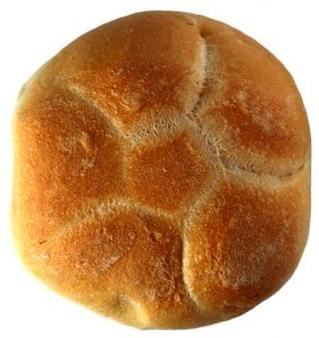It had happened again. After God delivered the children of Israel from the Jabin, king of Canaan, and his right-hand man, Sisera, through the hand of Barak, Israel did what was evil in the sight of YHWH. Instead of tearing down the altars of the gods of the land and establishing the altar of YHWH (which was the mandate given to them after the death of Joshua) Israel began to worship the gods of the land. The altars of Baal became central to the life of Israel. They allowed Baal to tell them who they were and how they were to live together. Baal was their judge, not YHWH.
Because they wanted the culture of Baal, YHWH turned them over to what they wanted, giving them into the hand of the Midianites for seven years. Like the locusts that consumed Egypt when God was destroying that culture, the Midianites were like locusts consuming Israel (Jdg 6.5) . Israel had been warned that, if they weren’t obedient, God would bring upon them the plagues of Egypt (cf. e.g., Deut 28.27, 60). If they acted like Egypt, they would be destroyed like Egypt. That is what happened.
Under the severe oppression of the Midianites, Israel cries for mercy. YHWH, in his mercy, raises up Gideon. The Angel of YHWH comes to Gideon while he is in a winepress threshing wheat. YHWH tells Gideon his mission: he will save Israel from the hand of the Midianites (Jdg 6.14). Gideon wants assurance that this is YHWH’s word, so he asks him to stay and accept an offering from him. Gideon brings a goat and unleavened bread and presents them to YHWH, and YHWH consumes them in fire. In this act, YHWH establishes peace with Israel through Gideon (Jdg 6.24).
The nature of the war is established from the beginning. This is an altar war. We might say it is a sacramental war.
From the establishment of the peace through building an altar to YHWH, Gideon goes out and tears down the altar of Baal, a feat that gets him the name “Baal-fighter,” Jerubbaal. Only now is Israel in a position to engage war with their oppressive cultural lords.
Through a threshing process, Gideon’s army is reduced from thirty-two thousand to three hundred men. Gideon is, understandably, afraid. He needs assurance. So YHWH tells him to take his servant and go to the camp of Midian. There Gideon overhears a dream that one of the Midianites had about a barly loaf rolling down into the camp and destroying the tent-house of Midian. They know that this is Gideon and that God has delivered them into his hand.
It does seem strange that they would be scared of a loaf of bread. Was this some type of weaponized bread? A militaristic culinary creation? This was the new loaf of Israel embodied in Gideon that had been created by God. This was a worship war; our bread against your house. Our bread wins.
The war continues today, and the fundamentals of the war remain the same: our bread against their house. Each Lord’s day when we come to the Table, eating the bread that is Christ’s body, we are formed anew into one loaf. We are one body, Paul says, because we all partake of that one bread (1Cor 10.17). Each week as we are dismissed, this new loaf rolls out to destroy the house of the false gods in our culture.
Our battles aren’t over family values or generic morality. Our wars are altar wars: will Jesus be acknowledged as our King, or will we worship some other Baal? We must understand that this is where the enmity lies. It is not merely in differences in economic policies or foreign relations (though each of these is affected). How we form our economic policies or foreign relations, for example, are consequences of the altar at which we worship.
Only as we are formed into one loaf at the Table of the Lord on the Lord’s Day are we able to fight the six-day battle with the culture the rest of the week. But as we faithfully attend to Jesus’ altar, eating at his Table, being formed up by the Spirit, he will make us a loaf that will tear down the house of our enemies.
















